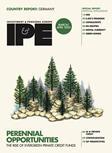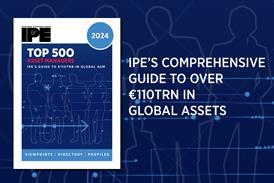Pension funds in the UK are considering reducing their US exposure as uncertainty looms over trade tariffs recently imposed by the US, according to UK pension consultants.
A WTW survey found that UK defined benefit (DB) pension funds are reconsidering their US exposures due to growing trade policy uncertainty and market volatility, with around 25% of schemes considering a reduction in US asset holdings.
Meanwhile, 34% saw increased member concerns over market movements – an early sign of geopolitical worries reaching beneficiaries.
Alasdair MacDonald, head of investment strategy for the UK at WTW, noted a significant shift, with 1 in 4 schemes reconsidering their investment positions, reflecting how policy uncertainty now acts as a market factor.
MacDonald added that this does not appear to be a reaction to any one policy. He said: “It’s the recognition that policy uncertainty itself is now a market factor. We note recent positive negotiations between major trade blocs are a step in the right direction, but do little to remove this uncertainty.”
Daniel Peters, senior partner at Aon, said pension funds have responded to market volatility driven by US tariffs through a combination of rebalancing, diversification, and governance reviews.
He noted that recent volatility has created opportunities for some schemes to rebalance their portfolios, particularly those that were previously underweight in equities. This has enabled funds to realign exposures and potentially improve long-term positioning amid shifting market conditions.
At the same time, the impact of tariffs on global trade has influenced equity markets, bond yields, and inflation expectations. In response, many pension funds have continued increasing allocations to alternative assets such as hedge funds and insurance-linked securities. These asset classes, being less correlated with traditional equities and bonds, can help cushion portfolios during periods of heightened market stress and enhance overall resilience.
Renewed focus on governance
Peters also highlighted a renewed focus on governance and operational effectiveness. Trustees are reassessing how decisions are made and implemented in volatile environments, where the speed of execution is critical.
In addition, long-term funding strategies are being reviewed to reflect ongoing geopolitical risks, with some schemes adjusting de-risking triggers and revising glide paths to better navigate prolonged uncertainty.
Meanwhile, Alastair Greenlees, head of investment strategy for the UK at Van Lanschot Kempen, noted most equity-heavy schemes have weathered recent volatility, but warned against panic trading and emphasised the need for robust governance and preparedness in an unstable global climate.
Going forward, he said it will be important to consider whether schemes are taking too much or too little risk.
He explained: “The equity market rebound shows the resilience of global markets, and the constant focus on de-risking could leave a scheme with no buffer, if the next event hits bond markets. It is important to reflect on these considerations before the next crisis and have the conviction to stay the course through the rough seas.”
New deals
Earlier this month, the UK and the US agreed to a deal that offers the UK a reprieve from the extra 25% tariffs on cars and metals. However, the deal will keep in place the 10% levies on most British exports.
The US also agreed to a temporary reduction in tariffs for China. Cutting tariffs on Chinese goods from 145% to 30% for a 90-day period, while China will lower its tariffs on US imports from 125% to 10% over the same timeframe.
While a small success after months of talks since US president Donald Trump ignited a trade war, pensions consultants, including Julius Bendikas, European head of economics and dynamic asset allocation at Mercer, and Anais Caldwell-Jones, principal at LCP, cautioned that despite recent deals, uncertainty remains high.
Caldwell-Jones highlighted that while the appeal of US assets is declining, other markets such as China and Europe are being seen as more attractive.
“Perhaps ironically, that has been as a result of the actions those regions have felt forced to take, such as fiscal stimulus, to protect their economies from the expected downturn in US trade,” he said.
Richard Forrest, associate director at Isio, emphasised that remaining tariffs and policy uncertainty may hinder growth.
He advised clients to use this period to reassess their risks, consider taking profits on assets which are richly priced after a period of exceptional returns and deploy into dry powder to take advantage of any opportunities that might arise.
Read the digital edition of IPE’s latest magazine
























No comments yet